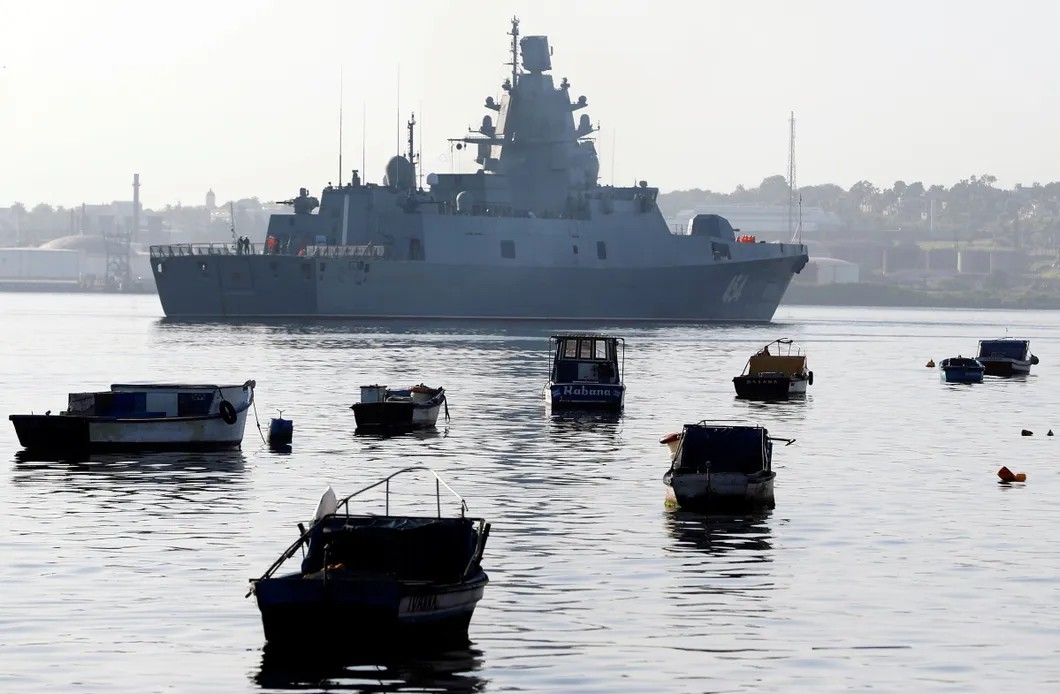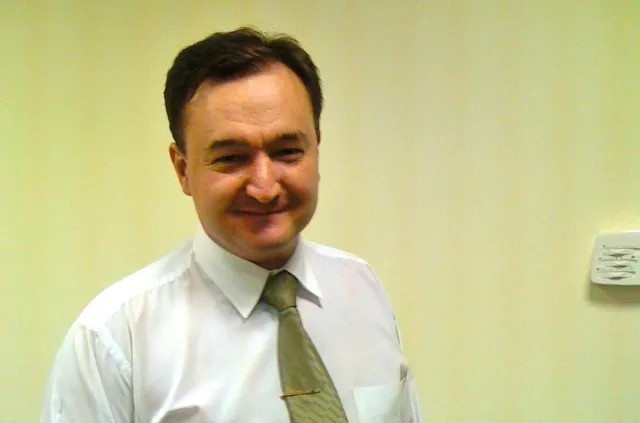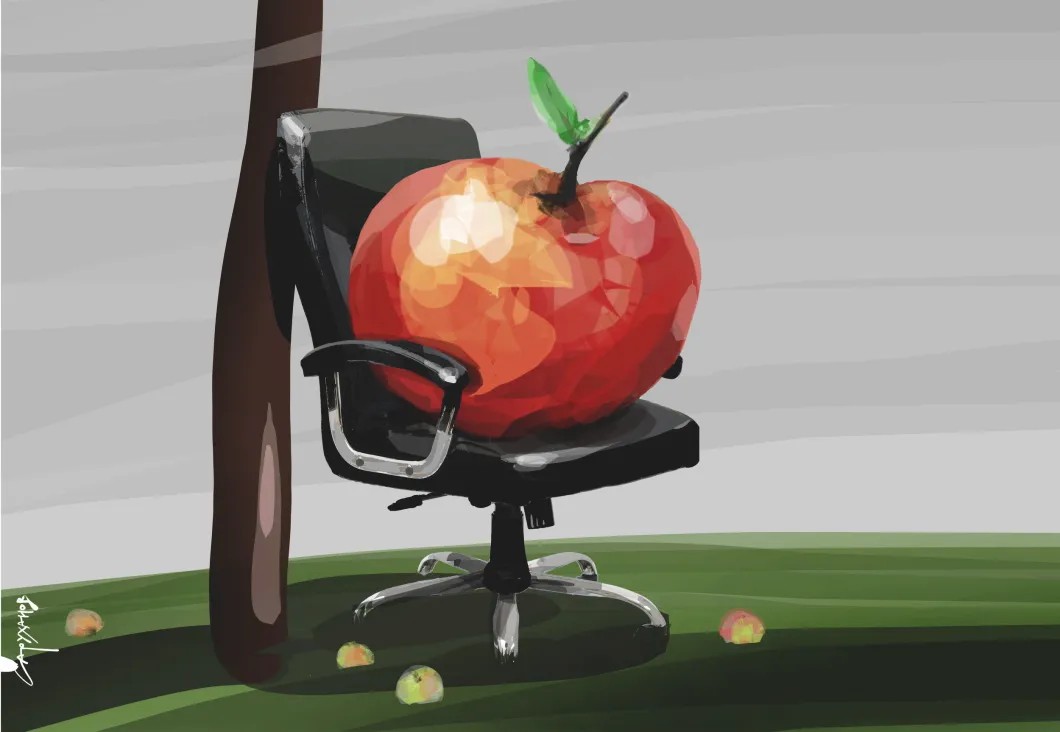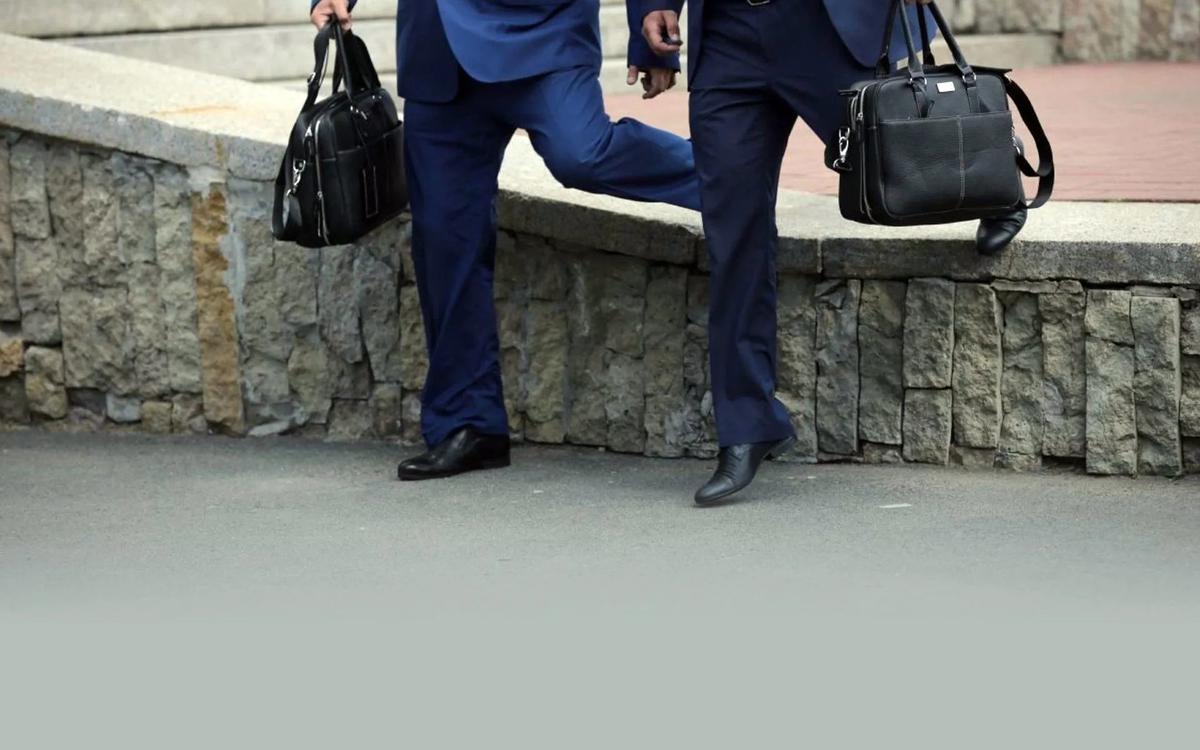This Week’s Highlights
Russia is opening a naval base in Sudan as Putin expands his footprint in Africa; in a huge step back for the fight against Russian money-laundering, Swiss prosecutors halt a key Magnitsky-linked investigation; plus, this week we explain how top positions in government and state-run enterprises are going to the children of top officials.
Want to get the full story? Click the links below for full-length articles in Russian.
Russia Reaches Sudan, Explained
Putin approving a Russian naval base in Sudan made global headlines and marked a major move to solidify the Kremlin’s footprint in Africa. But looking beyond headlines, the real aim was less about expanding into Africa and more about matching the U.S. presence in the Red Sea, where Washington has a military base, too. Despite significant troubles at home, Putin keeps prioritizing geopolitical flexing.
WHAT’S GOING TO BE ON THE SURFACE.The new naval base, dubbed a naval logistics hub, will be set up on Sudan’s main commercial port on the Red Sea, Port Sudan. Russia has not yet signed a final agreement with the Sudanese authorities, but the parties have already agreed on the parameters of the agreement. Russia will supply Sudan with free weapons and other military equipment in exchange for its presence in the country, including an air defense system for the port itself. The Russian base would remain for at least 25 years.
WHAT’S BEHIND IT.The Kremlin has a long history of close economic and geopolitical relations with Sudan dating back to the mid-20th century. But they got even stronger in the last 20 years. Putin backed the Sudanese military regime in the Darfur genocide and Russia would keep supplying most arms for the country (often in violation of international embargo). In return, Sudan backed the Kremlin in the invasion of Ukraine, the Syria intervention. Recent pro-democracy revolution in Sudan hasn't damaged these relations much since the local army, the Russian biggest ally in the country, remains in charge of military and foreign trade deals.

THE KREMLIN IS OBSESSED WITH COMPETING AGAINST THE U.S.The Russian Federation does not have capable aircraft carriers, and in order to have any hope of competing against the US and its NATO allies in the Mediterranean, it needs an airbase in the region that is covered by a multi-layered modern air defense system. That was the original reason that Russia's Syrian campaign was launched, to establish a powerful naval base in Tartus, and an equally powerful air force base in Khmeimim. Now Russia is taking the next step by moving south to Sudan.
BUT COUNTERING U.S. WOULD BE A STRUGGLE FOR THE IMPOVERISHED RUSSIAN NAVY.The agreement between Russia and Sudan says that nuclear warships can enter the port. But this is mostly a pipe dream, since Russia has only one nuclear surface ship. What's more, the ship is in need of renovation and hasn't moved very far lately. A project for the construction of a series of nuclear super destroyers, dubbed 'Leader', fell flat due to a lack of funds. New ships are being built in Russia, but they are all very small. They can fire Kalibr cruise missiles that can hold a nuclear warhead, but they aren't very seaworthy. To confront the Americans in the Indian Ocean with this "mosquito fleet", Russia needs a base in the region.
NO SUCH THING AS FREE.As is the case in Syria, a naval base in Sudan could fall prey to political instability. The current Sudanese government is an unstable, transitional civilian-military government whose future prospects are unclear. It's this government that has agreed to give Russia a naval base rent-free.
"In Syria, in order to save the base in Tartus and get Khmeimim, we first had to save the dying regime of Bashar al-Assad, which now needs endless and gratuitous supplies of everything in the world. In Syria, hundreds of Russians were killed or wounded. It goes to show, there is no such thing as a free lunch," writes our columnist Pavel Felgenhauer.
A THROWBACK FROM RUSSIA’S SOVIET PAST.To compete against its foe the United States, Russia is opening new military bases or reviving old Soviet bases in strategic locations. Russia has a slew of old bases in far-flung parts of the country like Chukotka, on the uninhabited islands of Franz Josef Land, Kotelny Island, and Wrangel Island, and on Matua in the Kuril Islands.
"It's just like the Soviet Union's strategic expansion and rearmament in the seventies and eighties. Last time, as you know, the global Soviet bubble burst with a bang, leaving piles of unnecessary iron in the most unexpected places,” Felgenhauer writes.
BACKSTORY.Apart from geopolitical flexing, Africa is a growing arms and natural resources market for Russia. Putin’s close ally, Yevgeny Prigozhin, known for running the private mercenary army the Wagner Group in Syria and elsewhere, is helping to expand this expansion. Apart from Sudan, the Kremlin is also heavily engaged with Libya, the Central African Republic, Mozambique and Madagascar. The details of the Kremlin's‘big return to Africa’ are often classified or concealed from public eye. Russsian independent media believe that Prigozhin’s people were involved in the murder of three Russian journalists in the Central African Republic in July 2018. Our special correspondent, Irina Gordienko, is the ex-wife of one of the late journalists, Orkhan Djemal, and her reporting on the murders has become the focus of a controversy between Novaya Gazeta and Russia’s Foreign Ministry.
Read our columnist Pavel Felgenhauer’s analysis of Russia’s military expansion from Crimea to Sudan here;
Swiss Prosecutors to Close Magnitsky Probe
This week we track a major step back in the fight against Russian money laundering. Swiss prosecutors are calling a halt to a nearly decade-old probe linked to the Magnitsky investigation. Unfortunate news arrives right on the anniversary of murder of Russian lawyer Sergei Magnitsky. It also has the scandal over Swiss top prosecutor who colluded with the Kremlin still unfolding in the background.
WHAT HAPPENED.The halted investigation tried to trace back $24 million from the Magnitsky case laundered through Swiss bank accounts. After nine years of investigative work the Swiss prosecutors gave up. They managed to confiscate only $4 million from the implicated accounts and most of them will now be completely unfrozen. Dmitry Klyuev, the alleged mastermind behind the criminal conspiracy that Magnitsky uncovered, will once again get access to his Swiss bank accounts. His Swiss Universal Savings Account was used to funnel $97 million of the fraudulent tax returns. Klyuev has been sanctioned by the United States. Hermitage Capital, the plaintiff in the case and Magnitsky’s former employer, reportedly called the move a ‘capitulation to Russians.’ “The end of the investigation is an invitation for money launderers to come to Switzerland,” Browder told Swiss journalists. “Here, they have nothing to fear.
“The Swiss decision seems strange, and goes against the law enforcement policies adopted by other states, many of which are adopting legislation that is similar to the US Magnitsky Act,” writes Andrey Zayakin, Novaya Gazeta's data journalism editor, who tracks Russian officials laundering money abroad. "What's more, the news broke on the anniversary of Sergei Magnitsky's terrible death in a Russian prison."

Поддержите
нашу работу!
Нажимая кнопку «Стать соучастником»,
я принимаю условия и подтверждаю свое гражданство РФ
Если у вас есть вопросы, пишите [email protected] или звоните:
+7 (929) 612-03-68
‘DILUTING THE LOOT.’Part of the reason for the failure of the Swiss investigation was a tactic employed by money launderers that allows them to dilute stolen money by mixing it with other funds, Zayakin explains.
“For example, if you steal a ruble, receive 9 rubles from an unknown source, and then put a ruble in a Swiss bank, how much of these funds should the Swiss consider stolen?” Zayakin writes. “The correct answer is 10 kopecks! Because stolen money could be mixed with other funds of unknown origins.”
WE’VE COVERED SWISS PROSECUTORS BOWING TO RUSSIAN KLEPTOCRATS BEFORE.Earlier this year Novaya Gazeta investigated the collusion of Swiss Prosecutor General Michael Lauber with corrupt Russian officials. Lauber’s assistant Vinzenz Schnell and the Trump Tower lawyer Natalya Veselnitskaya reportedly facilitated the collusion. Schnell often blurred the line between business and pleasure. For example, he took several hunting trips to Russia with late Russian deputy prosecutor general and Putin ally Saak Karapetyan. During a 2016 visit to Russia, he met with lawyer Natalya Veselnitskaya, who, at the time, represented the interests of Magnitsky's tormentors. He also flew on the plane belonging to then Russia’s Prosecutor General Yury Chaika, who is close to Veselnitskaya, and spent time with him on Lake Baikal and in Kamchatka.
SO MANY RED FLAGS IGNORED BY SWISS AUTHORITIES.While Schnell worked for the prosecutor's office, Swiss authorities either failed to initiate criminal investigations into Russian money laundering or allowed them to collapse, including the Magnitsky investigation. Most of the laundered Russian money in the Magnitsky case was channeled through Switzerland.
BACKSTORY.A Russian lawyer Sergei Magnitsky blew the whistle on Russia’s biggest ever embezzlement scheme in the late 2000s. It uncovered over $230 million stolen by the Russian officials and transferred to foreign accounts. Magnitsky was jailed and died in prison. The case spurred the global network of anti-corruption laws that was born out of the 2012 Magnitsky Act punishing the involved Russian officials via U.S. sanctions.
Read our full investigation into the case of Viktor K here; and read our data editor Andrey Zayakin's analysis of the Swiss decision to close Magnitsky’s case here.
Russian Nepotism, Explained
After news broke last week about a major shakeup in Russia’s government and state-run enterprises, we began looking into the people who recently landed the country’s top jobs. It turns out that many of the children of top level officials routinely occupy senior positions in state-run companies and replace other top-level officials in government departments. This latest example of musical chairs is no exception. Russia’s elite is handing the country over to its children.
FATHERS AND SONS.There are numerous examples of this type of nepotism, but here are a few noteworthy examples from dozens of cases we highlighted this week. The sons of former Prime Minister Mikhail Fradkov, Pyotr and Pavel, are the head of Promsvyazbank, a state-backed bank, and the deputy head of Russia’s presidential administration respectively. The son of Putin's friend and classmate, Viktor Khmarin, who is now consul general in the Seychelles, heads the state hydroelectric power company RusHydro. The son of the head of Russia’s Federal Financial Monitoring Service Rosfinmonitoring, Yuri Chikhanchin, is now the deputy head of the state-owned airline Aeroflot. And the son of the former head of the security services, Nikolai Patrushev, is now the Minister of Agriculture.

WHAT THEY HAVE TO SAY.The sons of Russia’s ruling elite have given mixed messages about how much their fathers have helped them in their careers. Pyotr Fradkov, the son of the former Prime Minister, is one example. In an interview he described taking a risk to head the Far East Shipping Company in Vladivostok at the start of his career, working far from Moscow and his father’s influence and assistance. But later he admitted to relying heavily on his father’s professional advice and connections. Which version is true? The answer seems obvious.
THE ECONOMIC IMPACT.The children of Russia’s ruling elite are, as a consequence of their connections, becoming multimillionaires. But this is having an extremely detrimental impact on the country’s economy, writes our economy columnist Dmitry Prokofiev. Social mobility is almost non-existent, and the country’s elite almost exclusively associate with their own. Meanwhile, annual economic growth hasn’t exceeded 1 percent in years and most people’s income has shrunk over the past 7 years. This kind of nepotism is a ticking time bomb because it ultimately leads to the degradation of the ruling elite.
“To preserve their positions, Russia's elite try to ensure that their subordinates are not in a position to challenge them and that there are no 'outsiders' in the decision-making circle. There should only be 'our people,' but only as long as they are not the best people,” explains Dmitry Prokofiev for Novaya Gazeta.
“AS OF TODAY, THE RUSSIAN ELITE HAS SOLIDIFIED AND STARTED TO REPRODUCE ITSELF.The same people, members of the same clans and people with the same surnames, all receive important posts. There are practically no new faces. And this is not only at the federal level, but everywhere,” Alexander Duka, an expert on Russian elites, tells Novaya Gazeta.
Read our full story about how the children of Russia’s elite are making their way up the ranks here; and our analysis of the economic impact of Russian nepotism here.
Other Top-Stories Russia Has Been Reading
- RUSSIAN MERCENARIES CARRY OUT A BRUTAL CRIME IN SYRIA. One of our most-read stories this week is an updated on Novaya’s investigation into war crimes committed by Kremlin-linked mercenaries in Syria. Exactly a year ago, Novaya Gazeta published a video of several men from the infamous Wagner Group torturing and killing a Syrian man. They beat the captured man, detonated a grenade near his groin, shot him several times, and then cut off his head and legs. Then they hung up his corpse and burned it. The victim’s relatives were able to identify the man, and we’ve uncovered the identities of the crime’s perpetrators. Nevertheless, not a single Russian law enforcement agency has launched an investigation into the incident. The Wagner Group’s mercenaries have been in Syria for years now, fighting on behalf of the Kremlin while obsconding its governmental ties. A Novaya Gazeta investigation from last January connected Kremlin-linked fixer Yevgeny Prigozhin to two virtually unknown Russian companies that scored major oil and gas deals in Syria last year. They too appeared to be operating with the help of the Wagner Group.
Thanks for reading!To keep up with Novaya Gazeta’s reporting throughout the week, you can follow us on Facebook, Twitter, Instagram, and Telegram. Our video content is available on Youtube and don’t forget to visit our website for the latest stories in Russian.
— The Novaya Gazeta Team
Поддержите
нашу работу!
Нажимая кнопку «Стать соучастником»,
я принимаю условия и подтверждаю свое гражданство РФ
Если у вас есть вопросы, пишите [email protected] или звоните:
+7 (929) 612-03-68
